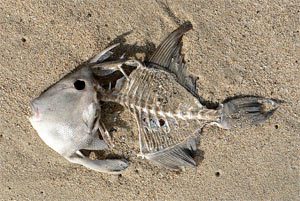
Hands off my ovaries, chemical industry
When it comes to ovaries, I get protective. Infertility, endometriosis, and fibroids aren't words I should have to use as frequently as I do. And I'm not the only one noticing this disturbing trend. Women around me agree that something is definitely wrong. Science is










